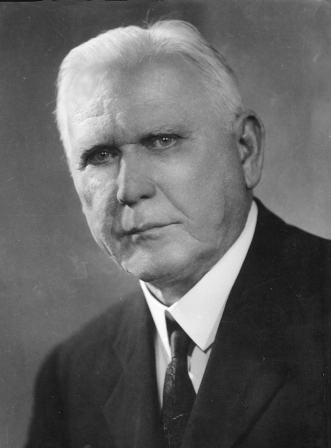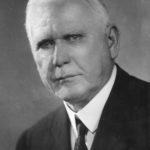Description
THE INSPIRATION OF IDEALS By George W. Truett
Inspiration of Ideals by George W Truett
Contents
Dedication. 3
FOREWORD.. 3
CHAPTER I The Inspiration of Ideals. 5
CHAPTER II The Leaf and the Life. 15
CHAPTER III The Power of Convictions. 39
CHAPTER IV The Supper of Our Lord. 55
CHAPTER V Baptists and Religious Liberty. 74
CHAPTER VI The Greatness of Service. 105
CHAPTER VII Dr. J. B. Gambrell: The Great Southern Baptist Commoner 123
CHAPTER VIII C. H. Spurgeon Centenary. 138
Chapter IX The Dedication of a Church. 158
CHAPTER X Civic Righteousness. 175
Inspiration of Ideals by George W Truett
Dedication
This and other volumes of sermons and addresses in this series by Dr. George W. Truett are dedicated to his beloved First Baptist Church, Dallas, Texas where most of them were delivered
Inspiration of Ideals by George W Truett
FOREWORD
The first four volumes of the Truett Memorial Series were composed of fourteen sermons each. There has been a widespread request that at least one volume of the series contain some of Dr. Truett’s addresses delivered on special occasions during his eventful life. Accordingly, ten addresses which are more or less typical of his whole ministry have been selected for Volume V. They range over forty-four years of his ministry, beginning with his graduating address at Baylor University in June, 1897, and concluding with an address he delivered in February, 1941, at the dedication of a church building in South Carolina.
The footnotes found on the first page of each address will quickly disclose the fact that the compiler and editor sought to select addresses which would cover a wide range of subjects and occasions, such as many ministers are called upon to face frequently. To them and other readers it will be of interest to observe how Dr. Truett dealt with these varied subjects and audiences across the years.
Inspiration of Ideals by George W Truett
Several of these addresses are reprints. The one on the Lord’s Supper was printed in tract by the Baptist Sunday School Board and had an extensive circulation in the Seventy-five Million Campaign of Southern Baptists during the years 1920-25. Baptists and Religious Liberty, The Leaf and The Life and the address at the funeral of Dr. J. B. Gambrell were printed in the volume entitled God’s Call To America, compiled and edited by Dr. J. B. Cranfill and copyrighted by the Sunday School Board of the Southern Baptist Convention. Dr. T. L. Holcomb, Executive Secretary of that board graciously granted permission to reprint and expressed the judgment that these several addresses were altogether worthy of reprinting at this time.
It is hoped that The Truett Memorial Series may ultimately contain ten volumes.
President’s Office Bethel Woman’s College Hopkinsville,
Kentucky Oct. 1, 1950
Powhatan W. James
Inspiration of Ideals by George W Truett
CHAPTER I The Inspiration of Ideals*
* The graduating address of George W. Truett delivered at Baylor University, Waco, Texas, June, 1897. Its subject and contents constitute a clear prophecy of this graduate’s future.
Every intelligent life must be a journey toward an ideal. This ideal is a pattern in the mind, held up before its eye, for imitation, realization and guidance. Aspiration is life’s universal law. What we call progress is but society following after and translating into life the visions of the mind. As a definite plan is essentially needful to the workman in the erection of his building, so are ideals in the fashioning of anything worthy in all the realms of human achievement.
It is language divine which says: “Where there is no vision, the people perish.” As the star guided the wise men of the East to the place where the Christ-child lay, so God has hung starry ideals — visions of the ever unattained — before men and nations, by which He ever beckons them on, in the working out of their destiny. The hope of this world has always been fashioned into some vision of what ought to be and may be; and the individual or nation, unstimulated by such vision, is speedily hastening into decline and the grave.
Inspiration of Ideals by George W Truett
This practical age sneers at “visions.” It asks for something practical; for houses and horses — for rail-roads and factories — for lands and gold. We forget that visions are the materials out of which all progress is fashioned. The builder of states is the one who sees visions and dreams dreams.
Every human invention was first a thought in some mind. For years, there was working in the mind of James Watt a vision which in time became a steam engine. So with the telegraph in the mind of Morse, the telephone in the mind of Bell, and the countless other inventions of men. For years, in the mind of Michael Angelo, there worked a vision of earth’s mightiest tragedy and at last an admiring world gazed enraptured on his matchless painting of the Crucifixion. The great artist. Millet, gazed for twenty long years upon the flying clouds. The people pushed him aside as a “dreamer”; but by and by he made an investment of 60 cents for canvas, brush and colors; and upon that canvas, he spread the glories he had seen in the heavens, and that vision gave him a painting worth $105,000.00.
Inspiration of Ideals by George W Truett
What are the vast volumes of literature, but the fastening upon the printed page the visions of some thinker’s mind? What are inventions and factories and institutions but the incarnation of ideals?
Yea, more, what is this wondrous, whirling planet, adorned with flowers and harvests and mountains, but the material embodiment of the thoughts of God?
These visions of the mind hold the secret of all progress whether of individuals or nations. Napoleon believed that every battle must first be fought in the mind; and so, while his soldiers slept, he marshalled his armies, and led them against his foes, and triumphantly saw the victory hours before the battle began.
Inspiration of Ideals by George W Truett
When only a dozen years of age, waking one midnight hour, John Milton beheld the vision of a poem which he fain would write and which the world would never allow to die. From that hour he ever followed the gleam of that midnight vision. He toiled seven long years in Cambridge, never closing a book before midnight He made a tour of Italy, the better to study that land of story and song. He hastened back to England to join his country-men in the conflict for liberty. The years hurried on, bringing slander and old age and blindness; but the midnight vision persisted and finally became the immortal poem — Paradise Lost.
While Henry Clay’s youthful hands hoed corn on the old farm, he had visions of standing in the halls of Congress. With every weed that fell before his stroke, his mind cut down an opponent with an argument. Ah, what battles in every age the plow-boys have fought in dreams! These plow- boys are the hope of the world!
Inspiration of Ideals by George W Truett
It has often been said that the history of civilization is the history of great men. It is largely true. What would Israel have been without Moses? Athens without Socrates? Carthage without Hannibal? Rome without Cicero and Caesar? Paris without Victor Hugo and Napoleon? England of the past without Milton and Shakespeare? England of the present without Spurgeon and Gladstone? America without Washington and Lincoln and Lee? Texas without Sam Houston? The characters of a few men leaven the life and mold the destiny of every nation. Their lives are as universities to the multitudes. They become beckoning beacons, pillars of cloud by day and fire by night to guide the peoples in their wilderness wanderings. The primary fountain of every country’s greatness is not in the extent of her territory, not in her imperial enterprises, not in her vast populations; all these a country may have, and her seeming prosperity be but as a feast of Belshazzar, flaming with wine and crowned with flowers, while speeding on to irretrievable doom. After all, Emerson’s test of civilization is the only true one: “The kind of men the country turns out.”
And the history of great men is only the history of their ideals. The history of every epoch of the past is but the history of some great ideal, embodied in a leader.
The ideal of individual responsibility and consequent freedom of action in religion, dropped into the life of Martin Luther, set tyrants to trembling and thrones to tottering, and led to the banishment of the dark night of the Middle Ages, and the advent of a mighty mental and moral reformation.
Inspiration of Ideals by George W Truett
It was the ideal of personal rights in church and state, which in the hands of Cromwell, became a weapon powerful enough utterly to destroy that citadel of iniquity: “The divine right of kings.”
It was his ideal of the structure of the globe that shaped the career of Columbus and determined the destiny of millions.
It was the ideal of the possibilities of free institutions and self-government, first dropped into the minds of the Founding Fathers that in its working has changed the course of all history and turned hopefully to our nation the eyes of the oppressed of every land.
During our American Revolution, when the English Secretary of War urged such an increase of English troops in Boston as would make England’s guns outnumber the guns of the Americans, the farseeing Pitt replied: “We must reckon not so much with their guns as with their sentiments of liberty.” Not rifle balls but sentiments win battles.
Nations as well as individuals are fashioned by their ideals. When the ideal of Sparta was grace and symmetry of body, then she produced the most splendid physique that has ever graced the earth. When her ideal fell to that of mere brute force, then her civilization was “red with the fierce fires’ of animal passion.” When the ideal of Athens was philosophy, there was produced her Socrates, Plato and Aristotle.
Inspiration of Ideals by George W Truett
When the ideal of France was glory, then “glory sat with the eagles on her victorious banners.” But when her ideal was agnosticism, then anarchy took the place of government; patriots were exiled and murdered; scholars were proscribed and banished; licentiousness held high carnival in her first homes, and lovely womanhood was degraded and despised.
The ideal of empire and commerce made little England, “the mistress of the seas; the ruler of vast and varied populations; the banking-house and workshop of the world.”
The great ideal of the worth and freedom of the individual has made the United States an asylum for the earth, and put her flag foremost among all that float in the galaxy of nations.
But I pause to say that there are ignoble ideals in our incomparable country, which forebode evil and threaten the well-being and the permanency of our beloved nation. Is it not time for patriots to inquire anxiously about our future when the press and the public give greater prominence to the pugilist than to the poet, to murder trials than to meetings of great religious bodies? The race horse is often glorified more than the gospel preacher and the unprincipled politician too frequently displaces the unselfish statesman. These things occur when low ideals are in the ascendancy.
Inspiration of Ideals by George W Truett
A still more dangerous enemy to great and noble ideals lurks in the well-nigh universal passion for money. Unquestionably, this passion is today the Black Plague of America’s individual, social and national life. Stealthily but surely it is corrupting our highest ideals of education, literature, statesmanship, and religion. No tongue among us is able to describe the direful effects of this gloomy trend of American life. The transcript of it may be seen in the glory and hill of ancient Rome. When the pagan Emperor of China was petitioned to license the opium traffic, he at once replied: “Nothing could induce me to desire a revenue from the vice and misery of my people.” And yet Christian England gladly derived an immense income from this very traffic; and Christian America “jumps at the chance” of obtaining revenues from business still more infamous and destructive. We talk much of heathen idolatry, but there was never a heathen temple crowded with more eager devotees, than is the temple of mammon in this land of alleged civilization and Christianity.
This passion for money is even now dictating terms to society; it is freezing patriotism to death; it is absorbing life’s higher aims; it is stifling intellectuality; it is consuming the vitality of our manhood and lowering the standards of our morality. For money men claw each other like vicious beasts. For it, they stand on yawning precipices that overhang the bottomless abyss! For it, they trifle with the judgments of God and lend their souls to deeds of infamy.
Inspiration of Ideals by George W Truett
No greater service could I offer today to my class and comrades, than to hold tip before them life’s noblest ideals, to urge obedience to them as the steady motives of their lives. They are the visions that lift life above its toils and seeming defeats, into the peace and hope of the unseen. History would be robbed of its glory if from it were stripped the story of the mighty men who have endured, through seeing afar off the realization of their visions. Moses long endured the hardships of the desert and wilderness because he foresaw the time when his people would be clothed with the qualities of patriots. It was this that sustained Paul chained in’ a dungeon, while bloody Nero lived in a palace of marble and gold. It was this that enabled John Huss to look out from behind prison bars, upon a massed mob of men, and calmly endure his trials, by the foresight of that day when the arms then wielded for repression of liberty should flash for its emancipation. It was this that sustained Savonarola, living in his garret and eating crusts, while Lorenzo was robed in purple and lived in a palace. It was this that enabled Dante to live exiled from his own vine and fig tree and at last to endure the scaffold while licentious kings drove in chariots and revelled in palaces. It is this that sustains the heroes of liberty and religion in every age, hunted as they often are as partridges upon the mountains — their lives one unceasing struggle against tyranny and sin. Through these noble ideals die whole manhood is vitalized, the mind is stirred to sublimest aspiration, the heart is nerved to all-conquering courage and endurance.
Inspiration of Ideals by George W Truett
The real worth of noble ideals is that by mere reflex influence they tend to mold men into their likeness. In the market-place of an Italian city, there once stood a beautiful statue of a Greek slave girl. It represented her as graceful, well-dressed and beautiful. Wandering through the streets was a homeless child, forlorn and ragged, who one day came before this statue, and for hours gazed upon it. On other days she came to admire it and drink in its inspiration. By and by the little street girl is herself a transformed child. Her face is now dean, her hair well combed, her tattered cothes washed and mended. That statue was an ideal to that wandering child, which acted as ideals always act; it revealed possibilities, it awakened new longings, it transformed her entire life.
It was found out thousands of years ago, that what men long gaze upon admiringly, transforms the heart and life. Moses went upon the mountain summit and for days was in fellowship with the God of light. When he came down again to the people, though Moses knew it not, the people saw in his face the reflected life of God. It was said of England’s great poet, John Keats, that his face was the face of one who had seen a vision. So long had there been before his mind some glorious ideal, that not only did his inner soul receive its loveliness but its awe-inspiring beauty was chiselled into every lineament of his face. Swiftly does man become like the thoughts he loves. He whose habit it is to think on things ugly and base will by and by expose the foulness of his character in every glance of his eye, and in every expression of his face. Faithfully does Dickens depict this power of thought. One of his characters, Monks, begins his life a guileless, beautiful child, but ends it with a face as eloquent of bestiality and sin, as hunger was ever written upon the countenance of a wolf. Constant thinking upon vulgarity and iniquity has transformed the sweet face of the guileless child into the countenance of a demon. It matters much upon what you think — “As a man thinketh in his heart, so is he.”
An artist cannot avoid putting himself and his own character into his work. A vulgar artist cannot paint a virtuous picture. It is said of one of our greatest artists that he would instantly turn away from a bad picture for fear the defect might impart itself to his brush. A low, aimless ideal leaves its mark upon the character as truly as God put upon Cain the brand of guilt. This is the reason why God forbids the worship of idols — man becomes like the things he admires and worships. Cruel idols have in every age made cruel men; effeminate idols have made effeminate men. There necessarily comes a paralysis of power to every one whose life is wedded to some narrow-minded, little hearted, superficial ideal. And as the rose becomes red by exposing its bosom to the sun and soaking each tiny petal in its rays of light, so constant thinking on noble things comes at last to transform the character into the image of the ideal comtemplated.
Inspiration of Ideals by George W Truett
Hawthorne illustrates this profound truth in his allegory of “The Great Stone Face.” On the side of a mountain overhanging a village where a young man lived, there was a great stone face. The people of the village oft talked of the prophecy respecting this face, that by and by, a great and noble man, having an exact resemblance to that face, was coming to the village, bringing blessings to all her people. While this prophecy touched only the surface of other’s thoughts, it sank to the depths of this young man’s soul. Day after day he would go out and for hours gaze upon the face in the mountain, thinking long and faithfully of what it stood for and of the coming of the great and good man who was to bless all the people. As he thought, he began to long to prepare the way for his coming. He strove to be himself what that great stone face would wish him to be, and here and there he went, scattering kindly looks and hopeful words. And lo, as the young man grew old, the gray about his face was like the mists about the stone face on the mountain and at last the shout went up from the people: “The prophecy is fulfilled — the man resembling the great stone face is even now with us.”
Comrades of the Class of ’97,
passing by all the ideals of men, many and mighty as they are, — I hold up before you the one ideal and inspiration for every day and duty of life. “He is no empty abstraction nor bloodless theory,” but He is Jesus of Nazareth, “in whom dwelleth all the fulness of the God-head bodily.” In Him alone is fulfilled those needs of highest manhood and noblest character, that forever enthrone Him the one Master and Model of the world. As you see His faithful portrait drawn in the simple words: “He went about doing good” – know that all education that aims only at self-improvement, stamps its possessor as a twin brother to the miser who gloats over his gathered gold. Study Him, and know that there can be no heroism save in self-sacrificing interest for others. From Him learn the strength of patience, the glory of self-control, the nobility of self-denial. Study him as against mighty odds, he resists temptations and holds up the great truth that bread and power and fame are not so vital as fidelity to principle. Plant your feet where His have walked, and let His great, unselfish, magnanimous life flash out its rebuke to every lull of conscience and every sordid vision that may assail you. And when your panting lives shall pass through that valley whose waters moan with the soul’s last struggle, may His glory rest upon your face and may His welcome make you happy forever!
Inspiration of Ideals by George W Truett






Reviews
There are no reviews yet.